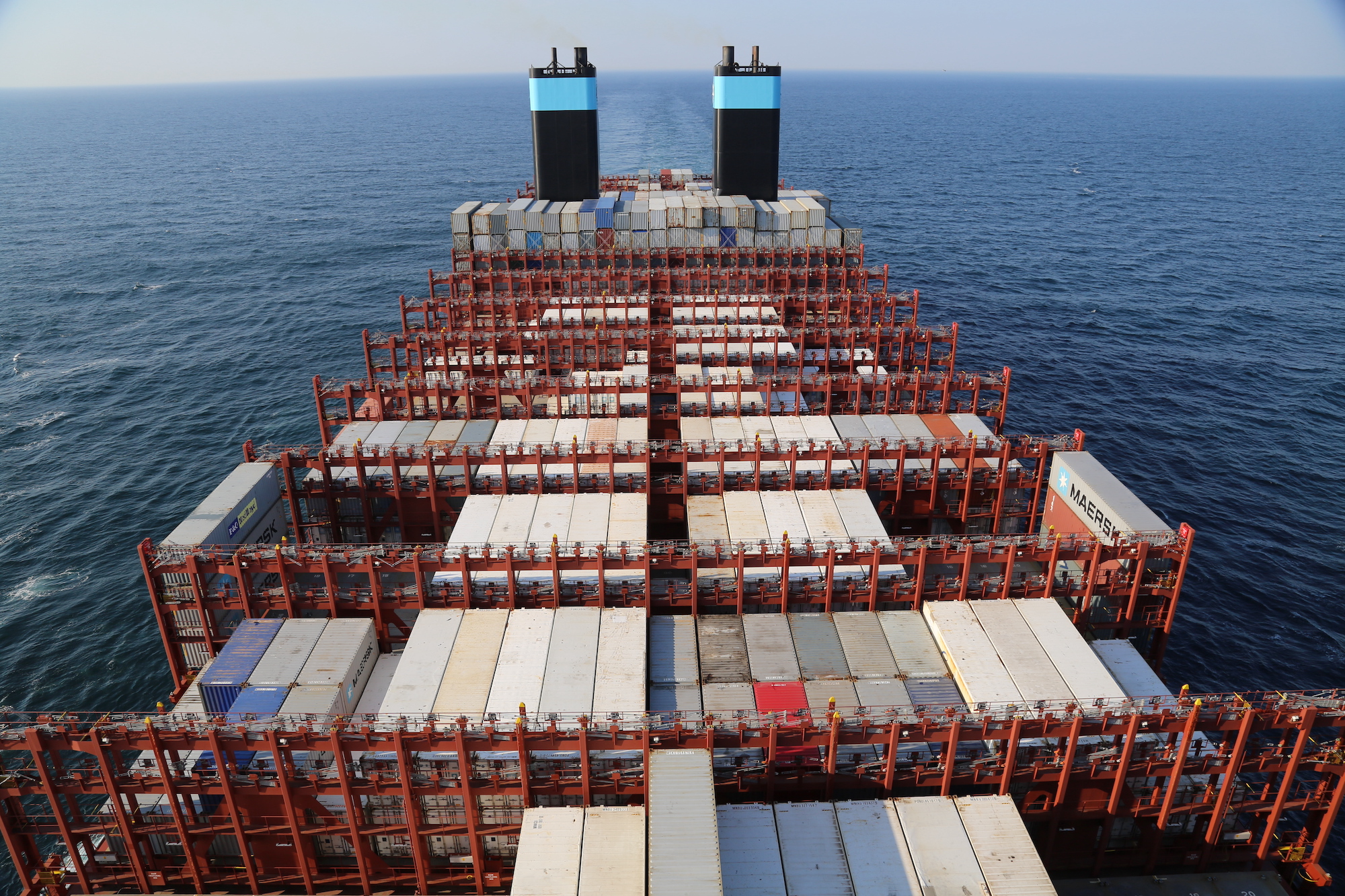

The shipping industry is important in linking together the global supply chain, but it’s fairly carbon intensive. Recent data suggest that shipping makes up around 3 percent of global carbon emissions, and there’s been much effort directed at making different parts of the process more green.
Shipping giant Maersk has been investing more than $1 billion on ships that run on green methanol, which is derived from the methane that is produced by food waste in landfills. This week, a new container ship from the company that is powered by that type of fuel plans to set sail from South Korea to Denmark, according to a report from Fast Company, and will be the first ever to use green methanol.
Some metrics about the ship, which doesn’t yet have a name: The vessel is 172-meters-long (around 560 feet), with a container capacity of 2,100 TEU and is designed to reach speeds of 17.4 knots.
CNBC estimated that each of these ships costs around $175 million. Maersk has 25 of these ships ordered, and is working to retrofit old ships to run on the new fuel, which means that they get new engine parts, and need new fuel tanks, along with a fuel preparation room and fuel supply system.
[Related: Birds sometimes hitch rides on ships—and it’s changing the way they migrate]
The company’s vision for the next decade is to transform a quarter of its fleet to run on this fuel. While the green methanol will still generate some emissions as it’s used up, compared to traditional diesel, it can cut emissions by more than 65 percent. Maersk has figured out a couple of ways to make green methanol. Other than collecting methane gas from waste and turning that into bio-methanol, Maersk can also make green e-methanol (which combines captured carbon dioxide and green hydrogen) with renewable energy. Although it was reported last year by Quartz that Maersk was worried about finding enough green fuel for its ships, it has been signing deals with countries and companies to streamline the supply of green methanol and put these ships to work.
Morten Bo Christiansen, who leads decarbonization at Maersk, said at the TED Countdown Summit last week that bringing down the cost is the next problem to tackle, as reported by Fast Company. But currently, the extra cost associated with green methanol compared to diesel is equivalent to consumers paying five extra cents for a pair of sneakers crossing the ocean.
